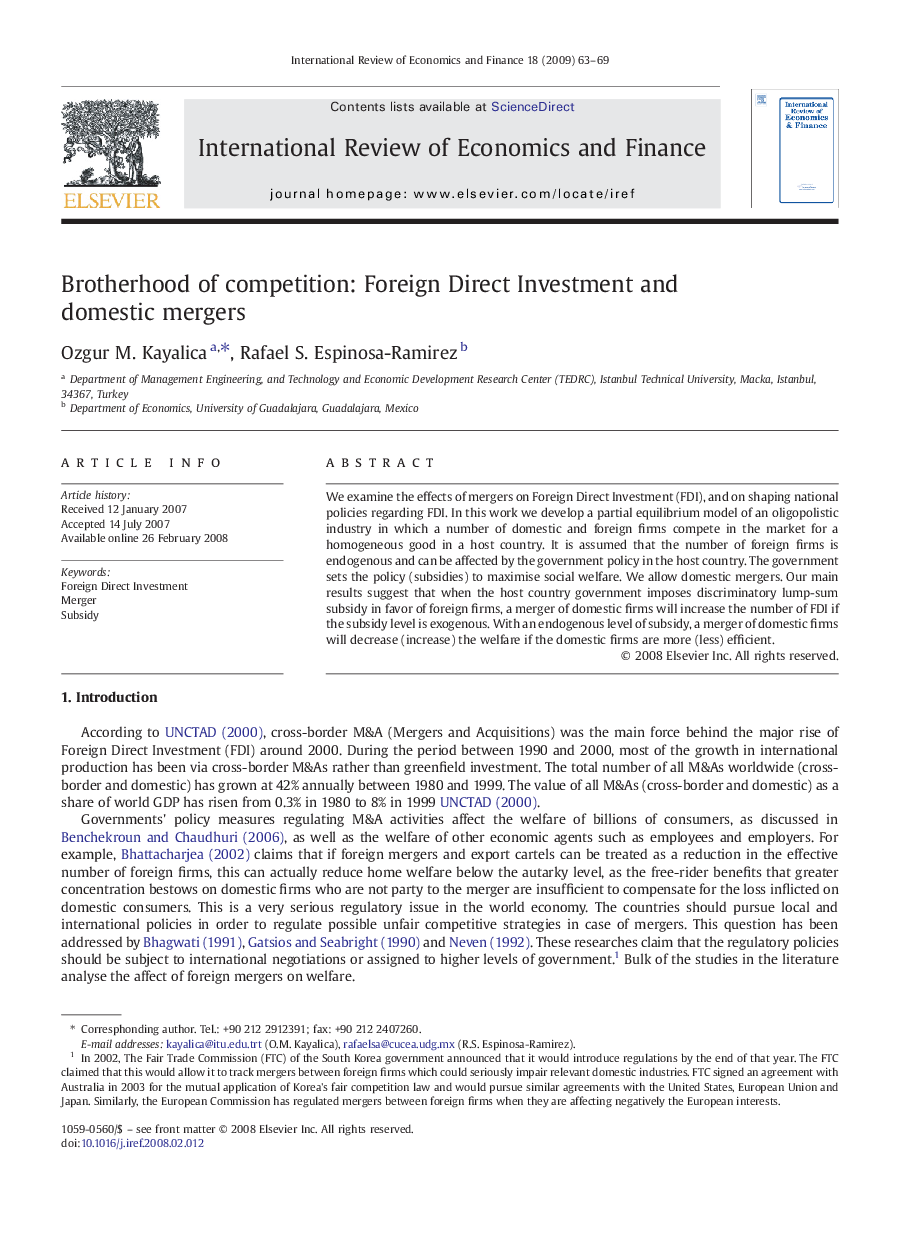| Article ID | Journal | Published Year | Pages | File Type |
|---|---|---|---|---|
| 5084141 | International Review of Economics & Finance | 2009 | 7 Pages |
Abstract
We examine the effects of mergers on Foreign Direct Investment (FDI), and on shaping national policies regarding FDI. In this work we develop a partial equilibrium model of an oligopolistic industry in which a number of domestic and foreign firms compete in the market for a homogeneous good in a host country. It is assumed that the number of foreign firms is endogenous and can be affected by the government policy in the host country. The government sets the policy (subsidies) to maximise social welfare. We allow domestic mergers. Our main results suggest that when the host country government imposes discriminatory lump-sum subsidy in favor of foreign firms, a merger of domestic firms will increase the number of FDI if the subsidy level is exogenous. With an endogenous level of subsidy, a merger of domestic firms will decrease (increase) the welfare if the domestic firms are more (less) efficient.
Related Topics
Social Sciences and Humanities
Economics, Econometrics and Finance
Economics and Econometrics
Authors
Ozgur M. Kayalica, Rafael S. Espinosa-Ramirez,
